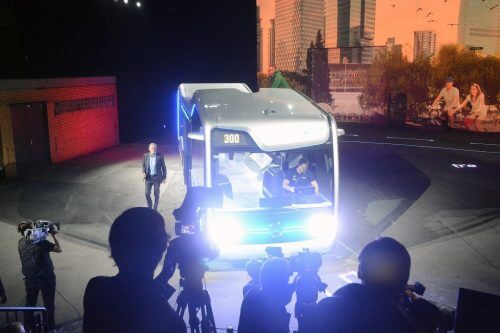
James Day attends a panel discussion on connected and autonomous vehicles, held as part of London Tech Week
In the evening of June 15, 2017, the trendy office setting of Huckletree Shoreditch in London hosted a panel discussion on connected and autonomous vehicles. The event discussed the challenges of introducing the technology from legal, social and business perspectives.
The panel consisted of four individuals. It was chaired by Vikram Khurana from law firm Bristows LLP, which specialises in legal services for new and pioneering technologies. Chris Holder from Bristows was also on the panel. David Wong represented the Society of Motor Manufacturers and Traders (SMMT), while Jan Przydatek provided the perspective of the Lloyd’s Register Foundation, a charity which supports engineering-related research while protecting life.
Opening the panel, Vikram said: “Vehicle technology has developed rapidly over the last few years. New systems are adding quite a significant level of autonomy to new vehicles already – things like adaptive cruise control or Tesla’s Autopilot.
“We’re looking at this subject in the context of wider trends we’re seeing now, such as the Internet of Things, robotics and AI, and in that context, we are seeing a trend where processing power is increasing, communications networks are rising in speed and sophistication and crowd computing is cutting the cost of data-driven technology significantly.
“The result of all those trends is a massive spike in autonomous systems, which process vast amounts of data. It is one of the technologies which is attracting the most investment in this area, with all the traditional car companies and some tech companies and startups getting involved.
“Autonomous vehicles could have a highly transformational effect on all our lives as well as causing massive potential disruption to existing businesses and potential transformational change to legal and regulatory issues.
“Currently, 90% of all road traffic accidents are caused by human error. In the testing of driverless cars to date, 94% of all accidents an autonomous car was involved in have been caused by human error, not a fault in the technology. By the mid 2020s, autonomous vehicles are predicted to comprise about 25% of the industry.”
The myths of autonomous vehicles
David Wong was the first of the panelists to provide his perspective on the industry, and he aimed to dispel some of the myths surrounding the technology.
He began: “A lot of people think that fully autonomous vehicles are already available, or if not already on the roads, available for purchase very soon. That is a myth[…]
What you get with a subscription
- Operator & Supplier Profiles
- Face-to-Face Interviews
- Lastest News
- Test Drives and Reviews
- Legal Updates
- Route Focus
- Industry Insider Opinions
- Passenger Perspective
- Vehicle Launches
- and much more!


